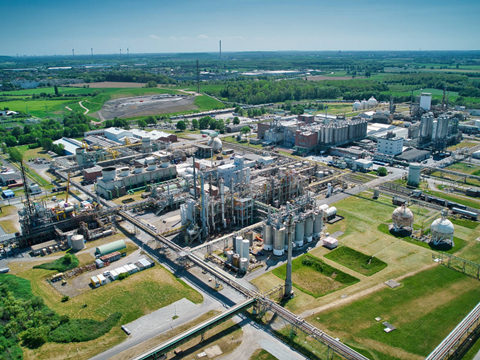
INEOS plans to shut two of its production units in Rheinberg due to high energy prices and carbon costs across the chemical sector, as well as a reported ‘lack’ of tariff protection – a landscape described as ‘suicide’ for Europe’s industry.
The chemical industry has been taking economic hits since 2022, according to ICIS. International competition, decreases in demand, and rising tariffs – especially in the US – are forcing companies to shut down their European plants.
Four million tonnes of cracker capacity are reportedly on the road to closing, with fears arising that almost every industry could feel the impacts.
“Europe is committing industrial suicide,” says INEOS CEO Stephen Dossett. “While competitors in the US and China benefit from cheap energy, European producers are being priced out by our own policies and absence of tariff protection.
“Meanwhile, high-emission imports flood our market unchecked. It’s completely unsustainable and if not immediately addressed will lead to further closures, job losses and increased dependency on other regions for essential materials.”
INEOS has already closed plants in Grangemouth, UK, and Geel, Belgium. It has mothballed assets in Tavaux, France, and Martorell, Spain, and plans to shut down another German facility in Gladbeck.
Both its Rheinberg facilities are believed to produce ‘essential’ chemicals. The Allylics unit produces a ‘key’ ingredient for epoxy resins used in renewable energy infrastructure, cars, aerospace, and defence, while the electro-chemical facility provides chlorine for industrial processes, sanitation, clean water, and medicines.
Closing these plants is expected to eliminate 175 jobs and potentially impact the wider German supply chain, which has already suffered job losses and reduced investment after an 18% decrease in output since 2019.
INEOS also blames a lack of tariff protection in the EU for displacing European production overseas. It raises the US as a contrast, where tariffs are said to prevent the oversupply of chemicals from Korea, Taiwan, and China – some of which are reportedly based on cheap feedstocks from Russia.
“We’ve reached the point where well-invested, efficient European plants are closing, while global emissions rise,” Dossett continues. “It’s not just economic madness. It’s environmental hypocrisy.”
The European Commission claims to be pursuing cost reductions. For example, the Clean Industrial Deal is designed to help energy-intensive industries pursue decarbonization, and its Affordable Energy Action Plan is attempting to lower prices and bills.
Even so, INEOS calls for ‘urgent’ state support to help cover ‘significant’ local transitioning costs as it attempts to preserve its remaining PVC operations in Rheinberg – protecting around 300 skilled jobs.
“INEOS Inovyn will work closely with partners and employees to minimize the impact,” Dossett concludes. “We are doing everything we can to protect what is still viable, but we can’t do it alone.
“If governments want to keep strategic manufacturing in Europe, they must help manage this transition and restore competitiveness.”
Earlier this year, Aluminium Deutschland warned that America’s 25% tariff on aluminium imports (not including aluminium scrap) could have ‘fatal consequences’ for the German and European markets, including scrap shortages and sell-offs.
In other news, industry players have called for a deposit system for lithium-ion batteries, as well as legislative reform to make battery disposal safer, in the wake of two separate fires at Hündgen Entsorgungs’ Swisttal-Ollheim waste sorting facility.
If you liked this story, you might also enjoy:
The ultimate guide to the Packaging and Packaging Waste Regulation in 2025
How are the top brands progressing on packaging sustainability?
Everything you need to know about global packaging sustainability regulation in 2025
The key to increasing the use of reusable packaging in supermarkets













No comments yet